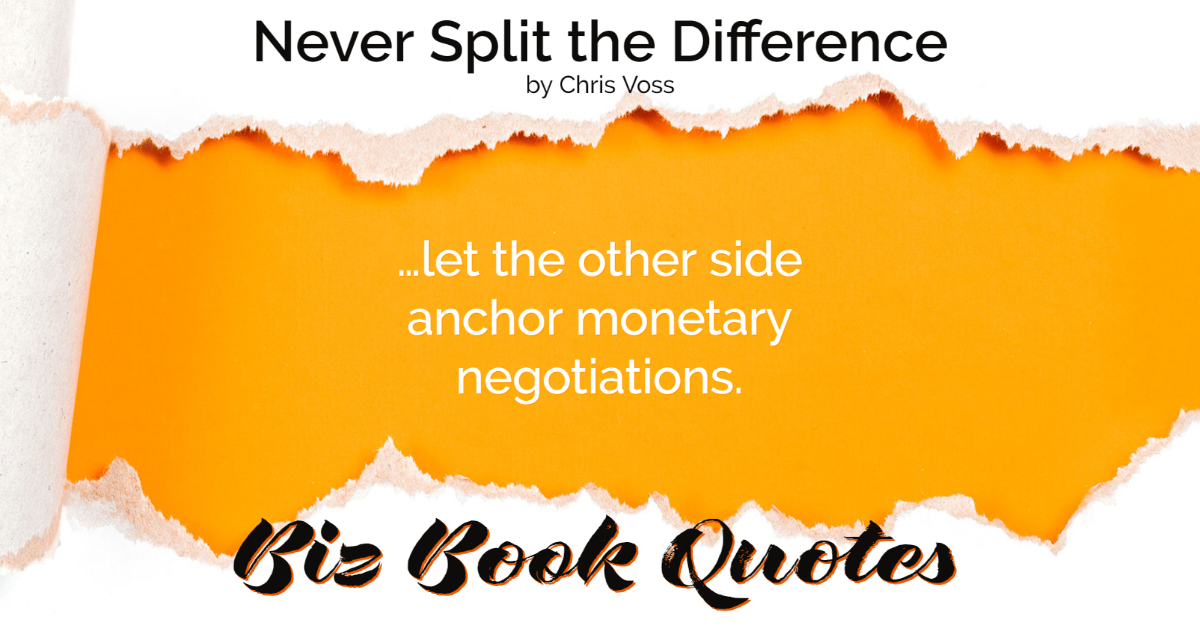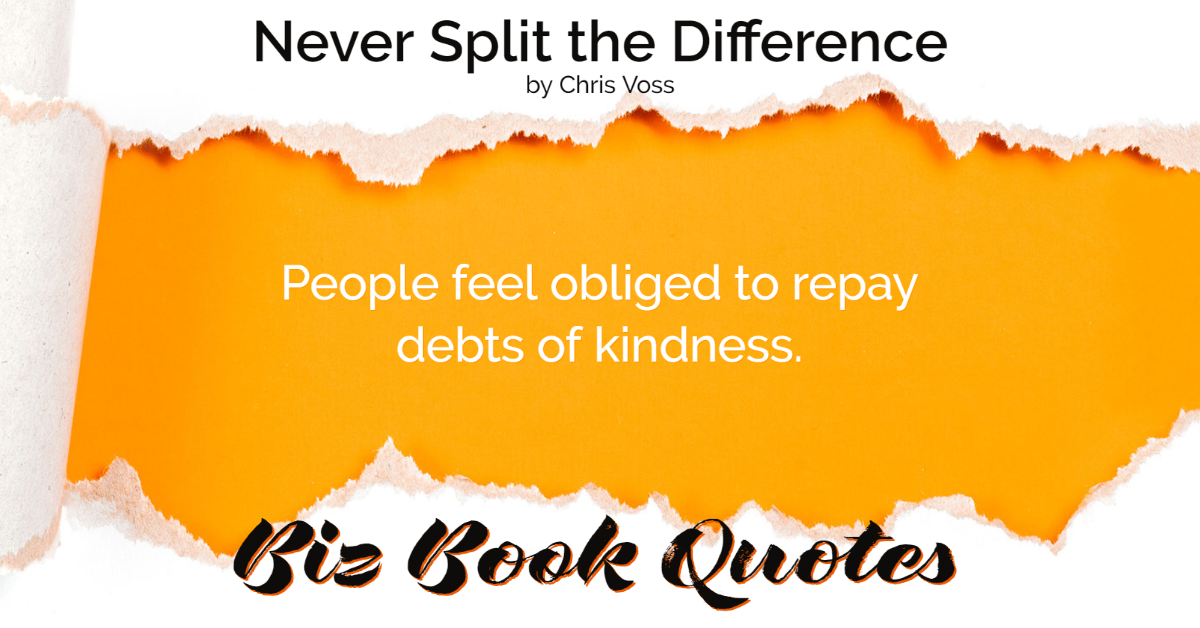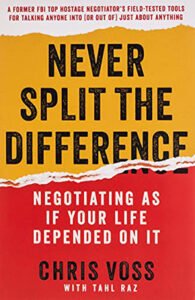|

|
Never Split the Difference:
Know the emotional drivers and you can frame the benefits of any deal in language that will resonate.
|
126 |
|

|
Never Split the Difference:
To get real leverage, you have to persuade them that they have something concrete to lose if the deal falls through.
|
128 |
|

|
Never Split the Difference:
…let the other side anchor monetary negotiations.
|
130 |
|

|
Never Split the Difference:
The tendency to be anchored by extreme numbers is a psychological quirk known as the ‘anchor and adjustment’ effect.
|
130 |
|

|
Never Split the Difference:
While going first rarely helps, there is one way to seem to make an offer and bend their reality in the process. That is, by alluding to a range.
|
131 |
|

|
Never Split the Difference:
…stimulate [your] counterpart’s brainstorming to see what valuable nonmonetary gems they might have that are cheap to them but valuable to [you].
|
132 |
|

|
Never Split the Difference:
Understand, if you offer a range (and it’s a good idea to do so) expect them to come in at the low end.
|
132 |
|

|
Never Split the Difference:
…if the other party feels the need to answer your generosity… They will suddenly come up on their offer, or they’ll look to repay your kindness in the future.
|
133 |
|

|
Never Split the Difference:
People feel obliged to repay debts of kindness.
|
133 |
|

|
Never Split the Difference:
Pleasant persistence is a kind of emotional anchoring that creates empathy with the boss and builds the right psychological environment for constructive discussion.
|
135 |











